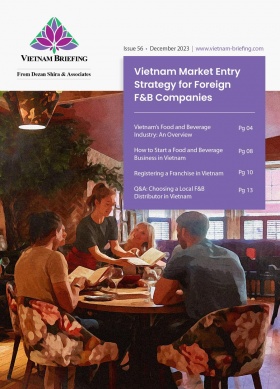Understanding Vietnam’s Regulation on Recognizing Foreign Electronic Signatures
Vietnam’s new regulations on recognizing foreign electronic signature providers and signatures took effect on August 15.
In a significant development for Vietnam’s digital economy, the Ministry of Information and Communications (MIC) introduced new regulations in July concerning the recognition of foreign electronic signature certification service providers and electronic signatures.
The regulations, which came into effect on August 15, 2024, were laid out in the newly issued “Circular 06 on the recognition of foreign electronic signature certification service providers and electronic signatures in Vietnam.”
These measures align with the 2023 Electronic Transactions Law, which aims to create a modernized and secure framework for digital transactions, enhance digital integration, streamline e-contracts, and promote international cooperation in electronic transactions.
Circular 06 is one of five guiding documents for the implementation of the 2023 Electronic Transactions Law, specifically addressing Article 26. It applies to a range of stakeholders, including foreign electronic signature providers seeking recognition in Vietnam, as well as organizations and individuals engaged in cross-border electronic transactions where foreign signatures are not yet recognized.
The National Electronic Authentication Center (NEAC), responsible for overseeing digital authentication in Vietnam, clarified that the circular focuses on harmonizing Vietnam’s digital transaction laws with international standards. Importantly, the regulation does not introduce new legal obligations but provides clear guidelines for recognizing foreign digital signature certification services, making the process more accessible and practical for foreign entities operating in the country.
Key elements of Circular 06 include detailed procedures for recognition, the required documentation, and specific timelines for both foreign service providers and users of electronic signatures. For foreign certification service providers, compliance includes updating the status of issued electronic certificates in the national electronic authentication system, ensuring that the certificates meet Vietnam’s regulatory standards.
The recognition period for service providers is linked to their licensing duration but cannot exceed the validity of their issued electronic signature certificates. For end-users, the recognition period is limited to five years or the certificate’s expiration date, whichever comes first.
Moreover, the circular mandates periodic technical audits, submission of service status reports, and the provision of statistical data, including the number of electronic signature certificates issued. Any significant changes to the foreign providers’ information or services must be promptly reported for re-recognition.
A representative from NEAC highlighted that Circular 06 is not just a regulatory formality but also a step toward fostering international cooperation in electronic signatures. By doing so, it facilitates broader participation of foreign entities in Vietnam’s digital transactions while ensuring a high level of security and reliability for domestic users.
Vietnam’s new law on e-transactions: Key points
On June 22, 2023, Vietnam’s National Assembly passed Law 20/2023/QH15 on E-Transactions, replacing the 2005 law. Set to take effect on July 1, 2024, the new law has expanded the scope of electronic transactions (e-transactions) and aims to promote digital transformation across sectors.
Key provisions
Legal validity of e-transactions: E-transactions are considered as valid as traditional ones, helping current laws apply immediately in the digital environment.
Comprehensive e-transactions: The law provides a framework for implementing e-transactions across all stages, streamlining processes and shortening transaction times.
Facilitating e-contracts: The law removes barriers to e-contracts, allowing ministers to issue sector-specific regulations.
Role of national digital platforms: The law emphasizes the importance of platforms like the National Data Exchange and the National Digital Architecture Framework.
Data sharing and monitoring: It introduces policies on data sharing, online monitoring, and inspection, enabling the use of big data for state management.
Data messages and e-signatures:
- Data messages: Chapter II details the legal status, transmission, and receipt of data messages, affirming that data messages are as valid as paper documents.
- E-signatures: The law categorizes e-signatures into specialized, public, and public-duty digital signatures. It also sets conditions for recognizing foreign e-signatures and their use in international transactions.
Trust services: Trust services, such as time stamping and data message authentication, are regulated as conditional business lines. Providers need a license from the Ministry of Information and Communications, with licenses valid for up to 10 years.
Summary
These regulatory developments are expected to enhance the legal framework for electronic transactions in Vietnam, providing secure, recognized pathways for foreign electronic signatures. This move is particularly important as Vietnam continues to deepen its digital integration with the global economy, ensuring smooth and compliant electronic transactions across borders.
About Us
Vietnam Briefing is published by Asia Briefing, a subsidiary of Dezan Shira & Associates. We produce material for foreign investors throughout Asia, including ASEAN, China, and India. For editorial matters, contact us here and for a complimentary subscription to our products, please click here. For assistance with investments into Vietnam, please contact us at vietnam@dezshira.com or visit us at www.dezshira.com.
Dezan Shira & Associates assists foreign investors throughout Asia from offices across the world, including in Hanoi, Ho Chi Minh City, and Da Nang. We also maintain offices or have alliance partners assisting foreign investors in China, Hong Kong SAR, Dubai (UAE), Indonesia, Singapore, Philippines, Malaysia, Thailand, Bangladesh, Italy, Germany, the United States, and Australia.
- Previous Article Vietnam’s Management of Duty-Incentivized Projects Following Ownership Changes: Latest Guidelines
- Next Article Investing in the Logistics Sector in Vietnam: A Brief Guide








